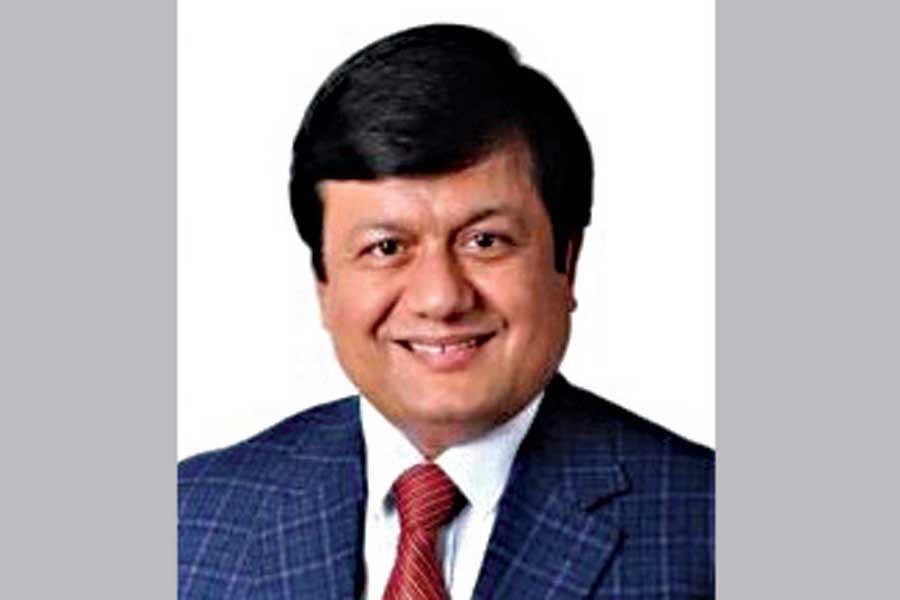Matiur Rahman's wealth build-up uncovers his breach of laws

Mohammad Mufazzal, Babul Barman, Farhan Fardaus
Published :
Updated :

Much talked-about revenue official Matiur Rahman has breached several legal provisions in his efforts to create wealth while serving the government, and he unknowingly admitted committing the offences in a recent TV broadcast.
He said he had sat with the management of several weak companies and advised them on how to improve the financial strength of the organisations. He gave the example of Fortune Shoes, in which he had invested by purchasing shares at Tk 8 each during private placement before the listing of the company. Later, he sold shares at Tk 54 each in the secondary market, making a hefty profit.
While it seems a wise investment move, his position in a key government position with access to undisclosed information about the company makes it unlawful to trade in the shares.

According to the Government Servants (Conduct) Rules 1979, no government servant should invest in any asset, the value of which is susceptible to information that is "available to him as a government servant and is not equally available to the general public".
There has been a lot of hype around Mr Rahman's wealth after his son Mushfiqur Rahman Ifat posted a photo of a sacrificial goat on social media and claimed to have bought it for Tk 1.2 million.
In the TV interview, the official of the National Board of Revenue (NBR) said he had secured income beyond his job as a public servant.
Fortune Shoes is not the only company Mr Rahman had put his money on. He acquired shares of more than a dozen companies during private placements at cheap prices and sold the holdings at high prices after the listing.
In doing so, he had been closely associated with at least some listed companies, which he himself acknowledged during the interview.
Anyone aware of any undisclosed price sensitive information (PSI) is deemed as an insider of the company involved. That person is forbidden to leverage the information to gain profits.
"It's simply a violation of the insider trading rules," said a senior management official of Prime Bank, preferring not to be named.
Mr Rahman claimed he was very different from general investors.
"What I do is, every year I find out which companies have potential but for some reasons they may be in a weak condition."
He then sat with the company's owner, visited the company, gave advice and learnt why the company was in a bad shape.
Mr Rahman went on saying that he had worked as a consultant and got shares at low prices and sold those at high prices when the company's financials improved.
Apart from going against the 1979 Servants Rules and the insider trading rules, he breached the securities rules by helping companies with IPO (initial public offering) proposals.
Only the issue manager has the role to play, said Mohammad Rezaul Karim, spokesperson of the Bangladesh Securities and Exchange Commission (BSEC).
"In many cases, the activities of Matiur can be treated as non-compliance with the securities rules." The BSEC would wait for more "prima facie information" and complaints before taking action against the NBR official.
The former chairman of the securities regulator, Faruq Ahmad Siddiqi said no public servant could do business and take up consultancy as a side profession without prior consent of the authorities concerned.
After the revelation, it is now the job of the Anti Corruption Commission (ACC) to take action against Mr Rahman, said Mr Siddiqi, adding that the ACC may take help from the securities regulator in examining the unlawful activities.

Actions taken so far
Meanwhile, Mr Rahman, president of the NBR's Customs, Excise and VAT Appellate Tribunal, has been attached to the Internal Resources Division (IRD) of the finance ministry, according to a circular issued on Sunday.
A process is also underway to remove Mr Rahman from the board of directors of Sonali Bank, said Financial Institutions Division (FID) Secretary Abdur Rahman Khan.
The government instructed Matiur Rahman not to attend the board meetings of Sonali Bank, said a top official of the bank.
"We informed our board members about the government decision," Sonali Bank Chairman Ziaul Hasan Siddiqui told reporters after a meeting of the board on Sunday.
The government had appointed Matiur as a director of Sonali Bank in February 2022 for three years.
The ACC formed a three-member committee to look into allegations of corruption and acquisition of illegal wealth, said ACC Secretary Khorsheda Yasmin to reporters on Sunday.
Did Matiur give a tip-off?
In the meantime, discussions are on about Matiur Rahman's son's expensive watches, cars, expensive lifestyle, and properties that he and his family members own, including resorts, shooting spots, and bungalows.
Making money seems to be second nature to Matiur Rahman. So, he found it irresistible to share his next move in the equity market.
At the end of the interview, the NBR official said he was working with pharmaceutical company Silva Pharma. The earnings of the company, as he claimed, will be tripled in the next one year.
Silva Pharma raised Tk 300 million from the primary market in 2018. Since the listing, its profit has been on the decline. The drug maker's profit plunged 68 per cent year-on-year to Tk 33 million in FY23. It paid only 1 per cent cash dividends for the year.
This is the backdrop to Mr Rahman saying the company would turn around within a year and its stock would soar from Tk 16 per share to Tk 30-32 per share on the bourses.
That is another glaring example of his access to undisclosed information, and the prediction he made on air about the stock price, according to a BSEC press release, is tantamount to a violation of the cyber security act.
babulfexpress@gmail.com
mufazzal.fe@gmail.com
farhan.fardaus@gmail.com


 For all latest news, follow The Financial Express Google News channel.
For all latest news, follow The Financial Express Google News channel.